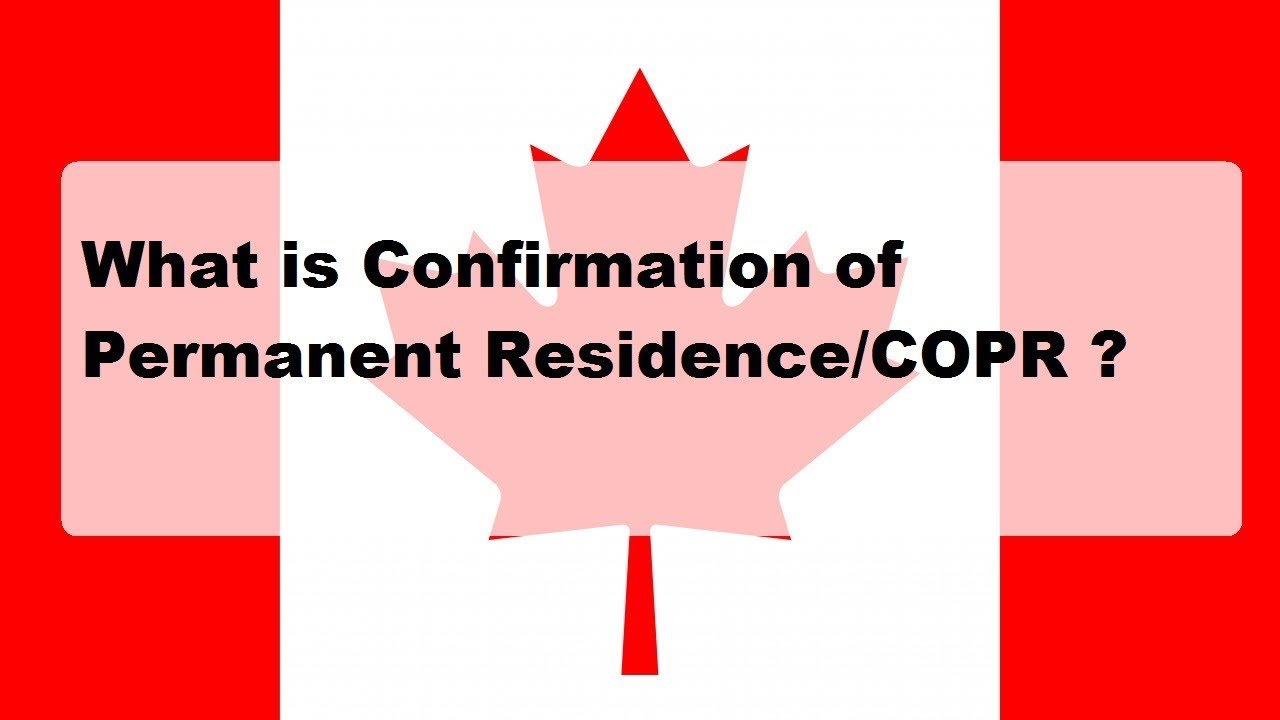Learning moments – Residency requirements for spousal sponsors living abroad
April 15, 2020
Brought to you week by week by Chantal Desloges and her fabulous team. Visit them here.
Hello fellow practitioners! This week’s question deals with the residence requirement in spousal sponsorships for sponsors living abroad.
Question
My question is regarding a client who is a Canadian citizen (Dual Citizenship) and wants to sponsor his wife. He is a freelancer, works most of the time in his other country of citizenship (Pakistan). He is submitting his 2019 taxes in Canada, and has resident status as well.
My question is can we say he is living in Canada in the application, as he is traveling and working freelance anywhere some times in other countries as well. In that case can we say he is resident of Canada? He works in Canada when ever there is any project in here and whenever he has time from his projects he came back to Canada. His wife has visit visa and she is traveling with him.
Answer
This question involves determining whether a client working most of the time in Pakistan, while being a Canadian citizen who files taxes in Canada and is posted abroad for employment purposes ”resides” in Canada.
s. 130(1)(b) of the Immigration and Refugee Protection Regulations (IRPR) states that in order to be considered a sponsor for the purposes of sponsoring a foreign national who makes an application for a permanent resident visa as a member of the family class, the sponsor must “reside in Canada”. The legislation does not define what “reside in Canada” means, so it is important to look to the case law.
In the case of Gristan[1] the Member looks to the case of Malik[2] to determine how much of a physical presence a sponsor must have in Canada in order to be considered as a resident for sponsorship purposes:
I see nothing in the IRPA or the IRP Regulations that stipulates a specific percentage of time the appellant has to be physically present in Canada in order to be considered a resident. I believe the analysis of what constitutes residing in Canada as set out in Malik to be applicable in this case.
The [former] Regulations does not explicitly state that “reside in Canada” means physically remain in Canada at all times. It is a rule of statutory interpretation that there is a presumption against intending what is inconvenient and unreasonable. Sponsorship applications take a long time to process. In the appellant’s case the application has been pending since September 1997. It is unreasonable to require sponsors not to travel out of the country even for a weekend or for a holiday on the grounds that that constitutes an interruption of residence in Canada. Adopting such an interpretation when one does not have to does not promote the rights and values of the Canadian Charter of Rights and Freedoms, section 6(1) of which reads: “Every Citizen has the right to enter, remain in and leave Canada.”
The Member in Gristan looked to various evidentiary proof, and made a decision on a balance of probabilities, which included:
- Employment in a Canadian business;
- Length of time outside of Canada, and whether those trips were tied to work or vacation;
- Bona Fide intentions to return to Canada, after leaving;
- Maintaining a residence in Canada, as well as purchases of other assets, such as a car, in Canada;
- Filing and paying of Canadian taxes on income earned, and paying into Canadian pension plan;
- Family ties to Canada; and
- maintains or centralizes his ordinary mode of living with its accessories in social relations, interests and conveniences in Canada[3]
The Member found that if the appellant can show that he/she has centralized their mode of living in Canada, then sometimes physical absence from Canada may not constitute an interruption of residence in Canada. It is a qualitative assessment based on many factors, not a quantitative one.
The case of Gao [4], the Board took the analysis further on what “resides in Canada” means, confirming the six-part test set out in Koo (Re)[5], which was based on an application for citizenship, as the dominant test applied when determining “residence status”:
(1) was the individual physically present in Canada for a long period prior to recent absences which occurred immediately before the application for citizenship?
(2) where are the applicant’s immediate family and dependants (and extended family) resident?
(3) does the pattern of physical presence in Canada indicate a returning home or merely visiting the country?
(4) what is the extent of the physical absences…?
(5) is the physical absence caused by a clearly temporary situation such as employment as a missionary abroad, following a course of study abroad as a student, accepting temporary employment abroad, accompanying a spouse who has accepted temporary employment abroad?
(6) what is the quality of the connection with Canada: is it more substantial than that which exists with any other country?
Further the Member went on to discuss the issue of family separation stating:
I agree with the position taken in Sahranavard that a sponsor ought not to be expected to remain in Canada for the whole of what can sometimes be a very long period of time while the application for a permanent resident visa is being processed. In fact, one would expect that in a genuine marriage the couple would want to be together at every available opportunity and, so, reasonable visits to a spouse outside Canada should not detract from qualifying as a sponsor who resides in Canada. As well, in this global economy there may be good reasons to be outside Canada from time to time.[6]
What is important for your client in order to justify that they meet the requirement of s. 130(1)(b) IRPR is the extent and the circumstances surrounding their absences from Canada. It is important for your client to justify to the officer that Canada is their central area of living, and that the absences are only of a temporary nature. If your client meets these requirements and can articulate to the Officer all of the above factors and evidence, they can arguably state that they are a resident of Canada, for the purposes of s. 130(1)(b) IRPR.
Sponsor living abroad and does not fulfill requirements of s. 130(1)(b) IRPR
If your client cannot show that he is considered a resident of Canada then he will need to ensure that he meets the following criteria as laid down by Parliament and jurisprudence for Canadian citizen sponsors living abroad.
The IRPR states:
Sponsor not residing in Canada
130 (2) A sponsor who is a Canadian citizen and does not reside in Canada may sponsor a foreign national who makes an application referred to in subsection (1) and is the sponsor’s spouse, common-law partner, conjugal partner or dependent child who has no dependent children, if the sponsor will reside in Canada when the foreign national becomes a permanent resident. [emphasis added]
Requirements for sponsor
133 (1)(a) A sponsorship application shall only be approved by an officer if, on the day on which the application was filed and from that day until the day a decision is made with respect to the application, there is evidence that the sponsor [as described in section 130]
This means that it will be up to your client to show proof that he and his wife intend to reside in Canada once his wife is approved for permanent residence.
The IAD has elaborated further on what this proof may include.
In Tabba v. Canada (Citizenship and Immigration)[7] the legal test was outlined:
[19] A Canadian citizen may sponsor the application of a foreign national as a member of the family class; and a wife is a member of the family class[9]. A condition of being a sponsor within the meaning of the Regulations includes a residency requirement. For the appellant who is absent from Canada to continue to reside in Canada, within the definition of sponsor, the appellant must maintain a connection to Canada beyond simply having the intention to return to Canada. In Sheikh[8], where the matter at issue was section 130(2) of the Regulations, the IAD decision maker stated:
8. (…) Unfortunate for the appellant, an articulation of an intent is not satisfactory in my view. What would have been appropriate today was for the appellant to have provided concrete evidence regarding his intentions, specifically actions that he has taken to show that he will reside in Canada when the applicant becomes a permanent resident. (…)
[20] The mere expression of intent to return and reside in Canada is insufficient to satisfy the requirement of section 130(2) of the Regulations. A number of non-exclusive factors may be relied upon in order to determine whether a person has maintained a sufficient connection to Canada. The factors fall into four key categories: family ties, residential ties, economic ties and social ties. [emphasis added]
It will be up to your client to make a detailed plan outlining exactly how they meet the requirements above, and how they fall into any of the four factors. It will be on a balance of probabilities that the decision-maker will assess the submission made. The stronger your client’s ties to Canada the better. It will be up to your sponsor and his wife to show how they plan to establish themselves in Canada once PR has been approved. This will include:
- Where they will work
- How they will be supported
- Where they will live
- What social ties they have to Canada, including friends and family
If your client works remotely and needs to travel for work, then he should provide a letter of employment from his employer that outlines in detail his job requirements.
Regarding your client’s residence status:
Zhang[9] noted two fundamental elements must be taken into consideration with respect to the determination of a “residence” for the purposes of sections 130 and 133 of the Regulation: the appellant’s bodily residence in a place and the appellant’s intention to stay in Canada. In Zhang the appellant was a permanent resident and in this case the appellant is a Canadian citizen. Therefore, the issue is not whether the appellant has resided in Canada but rather whether he will do so if the applicant becomes a permanent resident.[10]
If your client is able to show the above criteria for a Canadian sponsor living abroad then he will still be able to proceed forward with the application. Most importantly, your client will need to gather the necessary documents that justify to the officer your client intends to work, live and support his wife in Canada upon successful approval of the application.
For further IAD cases dealing with sponsors living abroad see:
- Hamid v Canada (Citizenship and Immigration), 2019 CanLII 74564 (CA IRB)
- Law v. Minister of Citizenship and Immigration (I.A.D. TA3-11031), D’ignazio, May 19, 2004.
[1] Gritsan v. Canada (Citizenship and Immigration), 2004 CanLII 56726 (CA IRB)
[2] Malik, Inayatullah v M.C.I. (IAD T98-02560), Sangumah, September 12, 1989
[3] Hui, Jenkin Ching-Kim v. M.C.I. (I.A.D. V92-01452), Ho, March 30, 1995.
[4] Gao v. Canada (Citizenship and Immigration), 2011 CanLII 48092 (CA IRB)
[5] Koo (Re) 1992 CanLII 2417 (FC), [1993] 1 F.C.286 at pp. 293-4.
[6] Gao v. Canada (Citizenship and Immigration), 2011 CanLII 48092 (CA IRB)
[7] Tabba v. Canada (Citizenship and Immigration), 2012 CanLII 86627 (CA IRB), paras.19-20
[8] Sheikh v. Ministry of Citizenship and Immigration (TA8-10349) Sherman, July 23, 2009
[9] Zhang v Minister of Citizenship and Immigration (I.A.D. MA3-02491), Patry, September 20, 2004
[10] Tabba v. Canada (Citizenship and Immigration), 2012 CanLII 86627 (CA IRB), paras.25



